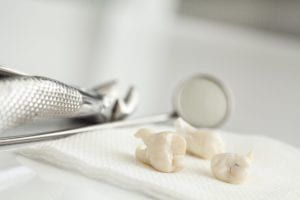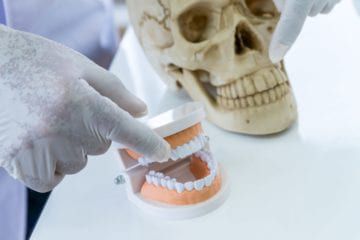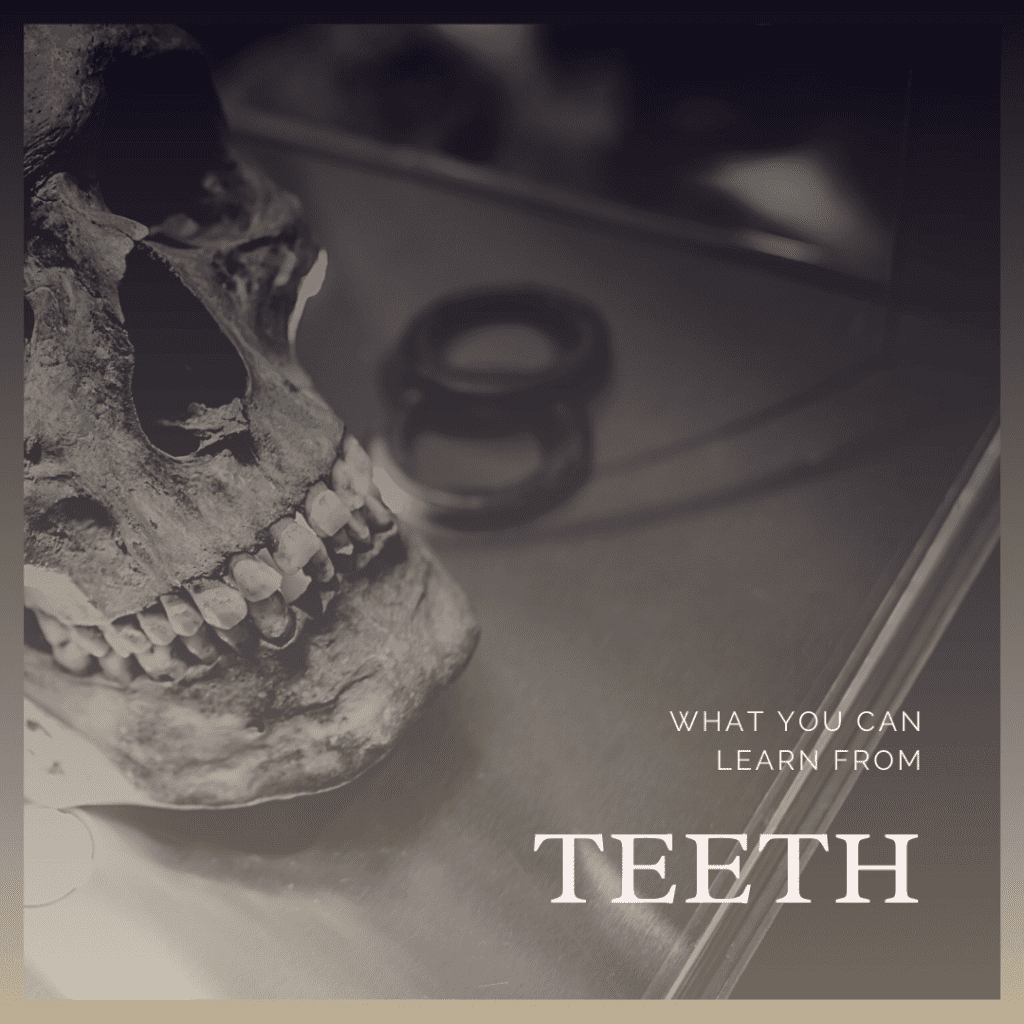Did you know that your teeth can talk? While they may not be able to literally speak to you, teeth can tell quite a bit about a person. This is the case whether teeth are being evaluated in a skull that is thousands of years old or in the mouth of a 30 year old dental patient at the dentist. In fact part of the reason why dentists can tell if you’re lying about your oral health habits is because your teeth will tell them the truth whether you do or not. Curious to know what stories teeth can tell? Here’s a few things that can be learned from teeth:
Diet

Teeth can provide valuable information about a person’s diet. In fact when studying ancient skulls, archeologists focus on the teeth to tell them what ancient civilizations ate. For starters, the shape of the teeth and jaw can provide clues about diet. For example, molars that contain several deep pits imply a hard-food diet, while molars with shearing patterns imply a diet of meat or leaves. Larger jaw size with extra teeth also imply a diet consisting of plants, bark, fruits, and grasses. Nowadays, your dentist can also learn about your diet by evaluating your teeth. Generally speaking, healthy teeth mean you also eat healthy. Conversely, a large amount of tooth decay indicates a diet high in sugar, while eroded enamel shows a highly acidic diet.
Bone Health
Your dentist can also make observations about your bone health by evaluating your teeth, even though your teeth themselves are not bone. This is because bone tooth pain and tooth loss can indicate the presence of osteoporosis and/or possible jawbone deterioration.
Mental Health
In some cases, your dentist may also be able to make observations about your mental health by looking at your teeth. This is because certain dental habits, such as teeth grinding, can be the result of mental health conditions like anxiety. Evidence of teeth grinding usually appears as damage or excessive wear on the teeth. Other evidence on the teeth that could suggest mental health conditions includes severely eroded enamel that could indicate bulimia or a sudden lack of oral hygiene that could indicate depression.
Lifestyle

The condition of teeth in ancient skulls and current dental patients can also provide hints about an individual’s lifestyle. Specifically, archeologists would evaluate the condition of teeth to determine the social class of an individual. Generally speaking, members of a higher social class were more likely to have undergone dental treatment and had teeth in better condition than those of a lower social class. Nowadays, dentists can determine if someone lives a stressful lifestyle by evaluating whether or not they grind their teeth. Additionally, your dentist can also tell if you smoke because the nicotine and tar in cigarettes results in a very particular type of tooth stain.
Identity
There is also a field known as forensic odontology or forensic dentistry. A forensic dentist specializes in identifying people and solving crimes. Although teeth are not as unique as a fingerprint, they can still be used to positively identify an individual, as can certain dental restorations, and even a person’s bite. Looking at the teeth alone can tell a forensic dentist the approximate age, ethnicity, lifestyle, and diet of an individual, which can all be valuable information in identifying someone.




